What is High-quality Permanent Magnet Materials
High-quality permanent magnet materials are essential components in a variety of industrial applications, from motors and generators to medical devices and consumer electronics. These materials are prized for their ability to maintain their magnetism once magnetized, which is crucial for the functioning of the products in which they are incorporated. The primary users of these materials include manufacturers, engineers, and designers who require reliable and consistent magnetic properties for their products.
The production of these materials involves various processes such as sintering and annealing, which influence the microstructure and the performance characteristics of the final product. High-quality permanent magnet materials come in different forms and compositions, with each type tailored to specific applications and operating conditions. For instance, neodymium-iron-boron (NdFeB) is known for its high magnetic strength, whereas samarium-cobalt (SmCo) offers exceptional magnetic stability at high temperatures.
The principles of how these materials work are rooted in the intrinsic properties of their atomic and molecular structure. The presence of unpaired electrons within the material leads to spontaneous magnetization. In permanent magnets, these aligned magnetic moments create a net magnetic field within the material, making it ferromagnetic. This field is what allows the magnet to attract other ferromagnetic materials and maintain its own magnetic properties over time.
Types of High-Quality Permanent Magnet Materials
The world of permanent magnets is diverse, with each type serving specific needs across different applications. Here is an overview of some common types:
-
Neodymium-iron-boron (NdFeB) Magnets: Known for their exceptional strength and magnetic properties, neodymium magnets are the most widely used type in applications where a high magnetic force is required in a small size. They are favored in industries such as automotive and electronics for their reliability and performance.
-
SmCo Magnets: These magnets offer superior magnetic strength at elevated temperatures, making them ideal for use in environments where maintaining a consistent magnetic field is critical. SmCo magnets are often selected for applications like aerospace and military systems where they may be exposed to extreme temperatures.
-
Alnico Magnets: A family of permanent magnets that includes several variations like Alnico 5 and Alnico 7. These magnets are notable for their ability to be magnetized in complex shapes and for their high magnetic flux density at elevated temperatures. Alnico magnets are often used in industrial applications like electric motors and generators.
-
Ceramic (Ferrite) Magnets: These magnets are versatile and can be produced in various shapes and sizes. Ceramic magnets are commonly utilized in loudspeakers, refrigerator door seals, and as educational aids due to their cost-effectiveness and durability.
Each type offers unique features that cater to specific needs within various industries such as manufacturing plants, building material shops, and even food shops where items like speakers and motors require reliable magnetic properties.
How to choose High-quality Permanent Magnet Materials
Choosing the right high-quality permanent magnet material is crucial for businesses looking to optimize their products’ performance. When selecting a material for your application—whether it be neodymium-iron-boron (NdFeB), samarium cobalt (SmCo), or AlNiCo—it is important to consider factors such as the working environment's temperature range and the required magnetic properties.
For applications where magnets will be exposed to high temperatures, NdFeB may be preferred due to its superior thermal stability. On the other hand, SmCo could be more suitable for products that require high coercivity and corrosion resistance.
The composition of the magnet material also plays a significant role in its performance characteristics. NdFeB magnets have different compositions that offer varying properties like strength or corrosion resistance; choosing the right one depends on your specific needs.
Another consideration is the shape and size requirements of your product. High-quality permanent magnet materials are available in various shapes such as round, rectangular, or even custom designs to fit unique applications.
Lastly, it's important to take into account any processing services you may need such as cutting or punching which some suppliers offer. Consideration should also be given to coatings that can influence the magnet’s performance and appearance.
About High-quality Permanent Magnet Materials on Alibaba.com
Alibaba.com stands out as a global marketplace connecting businesses with an extensive network of suppliers offering a wide array of permanent magnet materials. With over two decades of experience facilitating B2B transactions across more than 190 countries, Alibaba.com has established itself as an essential platform for companies seeking reliable suppliers and quality products.
Customers trust Alibaba.com not only for its vast selection but also for its commitment to making international trade more accessible and secure. The site's Trade Assurance service provides peace of mind by safeguarding payments until order fulfillment is confirmed. Moreover, buyers can communicate with suppliers in their local language through Alibaba.com's user-friendly interface on both desktop and mobile platforms.
Whether your business requires neodymium-iron-boron magnets for a high-tech application or seeks durable ferrite magnets for industrial use, Alibaba.com offers a diverse range of options without compromising on quality. The convenience of finding customized solutions—whether it's ODM for a specific product or OEM for an entire production line—further positions Alibaba.com as a top choice for wholesale purchases in the realm of permanent magnet materials.
Common FAQs for High-quality Permanent Magnet Materials
What are the main properties of high-quality permanent magnet materials?
High-quality permanent magnet materials are characterized by high magnetic strength, durability, stability across a range of temperatures, and resistance to demagnetization. They also maintain their magnetic properties over time if used within their specified limits.
How can I determine the right type of permanent magnet material for my application?
To select the right permanent magnet material, consider the environment in which the magnet will operate, required operating temperature, strength and magnetic properties, potential exposure to corrosion or mechanical stress, and any additional services like cutting or welding.
What are the differences between NdFeB and SmCo magnets?
Neodymium magnets are known for their high magnetic field strength and are used in applications that require compact size and strong magnetism. Samarium-cobalt magnets, on the other hand, offer excellent thermal stability and resistance to demagnetization but are typically more expensive.
Can high-quality permanent magnet materials be customized for specific shapes or sizes?
Yes, high-quality permanent magnet materials can often be customized into various shapes or sizes to meet specific application requirements. Customization options may include different geometries, sizes, or additional features like holes or cutouts.
What does 'coercivity' mean in the context of permanent magnets?
Coercivity refers to a magnet's ability to resist demagnetization. It's the measure of a magnet's resistance to opposing magnetic fields or forces that can cause it to lose its magnetization.
Are there any safety precautions I should be aware of when handling high-quality permanent magnets?
When handling high-quality permanent magnets, ensure that you understand the potential risks associated with strong magnetic fields, especially if you are working with large or powerful magnets. Proper storage and transportation are also important to avoid potential harm or damage.
How is the temperature rating of a magnet determined, and why does it matter?
The temperature rating of a magnet indicates the maximum temperature at which it can operate without significant loss of magnetic properties. Exceeding this temperature can lead to demagnetization or failure.
What does 'rare earth magnet' mean, and why are they considered high-quality?
Rare earth magnets are a group of magnets composed of elements from the lanthanide series that includes neodymium, samarium-cobalt, and terbium. They are considered high-quality due to their exceptional magnetic strength relative to their size.
Can high-quality permanent magnet materials be used in environmental applications?
High-quality permanent magnets can be used in environmental applications as they are often made from materials that are highly resistant to corrosion and temperature extremes. However, it's essential to verify that the specific material you choose meets the environmental conditions of your application.
What are some common applications of high-quality permanent magnet materials?
High-quality permanent magnet materials are commonly used in electric motors, generators, sensors, magnetic separators, and various industrial processes where strong and efficient magnetic fields are required.
How do I verify the authenticity of permanent magnet materials?
Authenticity can be verified by requesting quality certifications from suppliers and checking material data sheets that provide detailed information about the material's composition and performance characteristics such as magnetic strength and temperature tolerance.

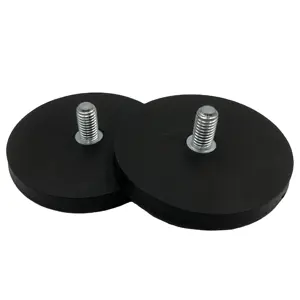





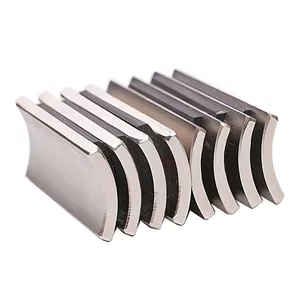

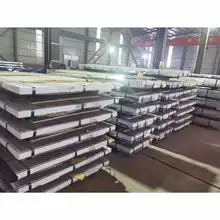






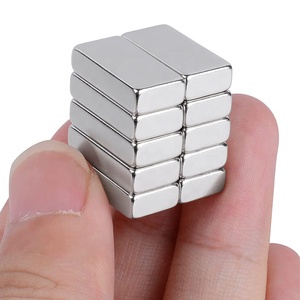
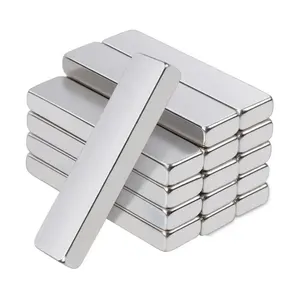
















 浙公网安备 33010002000092号
浙公网安备 33010002000092号 浙B2-20120091-4
浙B2-20120091-4